When Prime Minister Narendra Modi visits the Maldives on 25 July for a two-day trip, it will mark a unique diplomatic precedent. He becomes the first Head of Government to visit the Indian Ocean archipelago under successive Maldivian regimes — each with sharply contrasting foreign policy orientations.
Modi was the sole overseas leader invited to the inauguration of former President Ibrahim ‘Ibu’ Solih. By contrast, his visit to Maldives under the current President, Dr Mohamed Muizzu, comes 21 months after the latter assumed office — yet he is still the first foreign leader received by the Muizzu administration.
What began as preparations to jointly celebrate 60 years of India-Maldives diplomatic ties evolved into a more significant event when PM Modi was invited as the Guest of Honour for the Maldives’ 60th Independence Day on 26 July — a rare gesture, as Maldives does not typically host foreign VVIPs for this occasion.
Resetting Relations
President Muizzu’s delay in inviting Modi also reflects the time needed to reset relations that had been strained during his early months in office. Initially, Muizzu echoed the combative rhetoric of his political mentor, former President Abdulla Yameen, who spearheaded the ‘India Out’ campaign. However, experience has taught Muizzu the practical value of Indian support — as a reliable “first responder” during crises, a role New Delhi has played not just in Maldives but also in Sri Lanka.
His initial tilt toward Turkey and China, marked by official visits and pointed criticism of India, was driven more by domestic political posturing than strategic depth. His statements alienated India’s strategic community, but it’s worth noting that New Delhi had not extended him an invitation at the time — and Muizzu needed to quickly establish international legitimacy.
Impact Shorts
View AllNew Delhi also took time to assess Muizzu’s foreign policy orientation, especially given the belief — often overstated — that his electoral victory in 2023 was rooted in an anti-India stance. In truth, Muizzu capitalized more on the anti-incumbency sentiment against Solih, whose Maldivian Democratic Party (MDP) was crippled by internal feuds, particularly between Solih and his estranged ally and former President, Mohamed Nasheed.
Yameen and the China Factor
Yameen, despite making three visits to India during his presidency (2013–2018), failed to reciprocate Modi’s outreach. He instead pivoted toward China, which culminated in President Xi Jinping’s historic visit to the Maldives. Yameen also sought Indian assistance for infrastructure projects such as a Coast Guard jetty — only to oppose the same under Solih. He even demanded the withdrawal of Indian helicopters meant for humanitarian operations.
Under his regime, Maldives signed an FTA with China, but both Yameen and Solih later shelved its implementation — now criticized domestically as one-sided and damaging to Maldives’ fragile economy.
Missteps and Maturity
Muizzu initially mirrored Yameen’s approach, casting aspersions on India and questioning its role in supplying basic goods like rice, sugar, and medicines — claiming Maldives would diversify imports from distant sources such as Turkey, Europe, and the U.S. But the global disruption in shipping routes due to the Gaza conflict and Houthi attacks exposed the impracticality of such alternatives.
Behind the scenes, Maldives quietly approached India for help. New Delhi responded with grace, reflecting Modi’s oft-repeated motto, Vasudhaiva Kutumbakam (“The world is one family”). The first sign of rapprochement came during a meeting between Modi and Muizzu at the Climate Summit in Dubai, where they agreed to resolve issues through dialogue.
A High-Level Core Group was set up to address bilateral concerns, including Muizzu’s demand for the withdrawal of Indian military personnel. It turned out that only around 60 Indian personnel were stationed to operate Indian-donated aircraft for emergency services. India agreed to replace them with civilian pilots and engineers — a gesture that cleared a major diplomatic hurdle.
Social Media Fallout: ‘Boycott Maldives’
Yet, social media activism in India inflamed matters when three junior Maldivian ministers insulted PM Modi following his visit to Lakshadweep. The resulting #BoycottMaldives campaign significantly dented Maldivian tourism, which had previously benefited from Indian travellers being the largest source market.
Muizzu suspended the ministers before departing for China but later returned with renewed hostility, casting a shadow on his diplomatic intent. The episode remains a grey area in India-Maldives relations, though both sides have since opted to move on.
Ironically, Indian social media influencers also called for a boycott of Turkey — despite New Delhi steadily normalizing ties with adversaries like China, even after the Galwan clash. India recently resumed issuing tourist visas to Chinese citizens and is quietly de-escalating tensions. The message: diplomacy is better handled by statesmen, not social media warriors.
Vision for the Future
President Muizzu visited India twice in 2024 — first for Modi’s swearing-in (Modi 3.0) in June, followed by a State visit in October, during which a Vision Document for a Comprehensive Economic and Maritime Security Partnership was signed.
During Modi’s current visit, the two sides will review progress on that agreement, focusing on Indian-funded infrastructure and development projects. Reports suggest Maldives has requested further financial assistance, which India is likely to approve — especially after finding Chinese financial support insufficient.
However, breakthroughs on maritime security remain tentative. Discussions have resumed about India helping to map the Maldivian seabed for mineral resources, but it remains to be seen how this progresses. Likewise, prospects for a bilateral Free Trade Agreement (FTA) are uncertain, given past controversies.
India’s Foreign Secretary Vikram Misri recently confirmed that an FTA is now on the table. But given the Maldives-China FTA experience, many Maldivians remain skeptical of deals perceived as unequal.
Strategic Concerns
India continues to monitor the movements of Chinese “spy ships” in the region. When Maldives allowed one such vessel to dock last year, Muizzu’s government emphasized it was only for resupply, not research. Improved relations with India may deter further provocations from Beijing in the near term.
From New Delhi’s standpoint, the message is clear: Modi’s visit symbolizes India’s commitment to work with any elected Maldivian government for mutual benefit and regional stability — regardless of domestic political churn in Male.
Domestic Challenges for Muizzu
Muizzu’s visit to the UK, and his failure to raise the Chagos Archipelago issue, has sparked criticism at home. He had earlier vowed to reclaim the territory from Mauritius — a claim abandoned by Solih’s government, aligning with international consensus.
Critics may attempt to link Modi’s visit to political developments such as the reunification of the MDP, but the optics clearly favour India’s consistent approach to respecting Maldivian sovereignty and democratic choice.
Moreover, Muizzu’s consolidation of power through constitutional changes, including a controversial anti-defection law and the removal of judges, raises new questions about domestic governance. Whether he can balance internal stability with external diplomacy remains to be seen.
Looking Ahead
Just days after Modi’s departure, Sri Lankan President Anura Kumara Dissanayake is scheduled to arrive in Maldives for a three-day visit, expected to include the signing of an FTA and other cooperative agreements. This sequencing of high-level visits underlines Maldives’ increasing relevance in regional geopolitics.
From a strategic and economic standpoint, Maldives is emerging once again as a crucial node in India’s maritime neighbourhood. Modi’s visit — with its symbolic, strategic, and economic weight — is aimed not just at mending fences, but at charting a stable, long-term partnership.
The writer is a Chennai-based Policy Analyst & Political Commentator. Views expressed in the above piece are personal and solely those of the author. They do not necessarily reflect Firstpost’s views


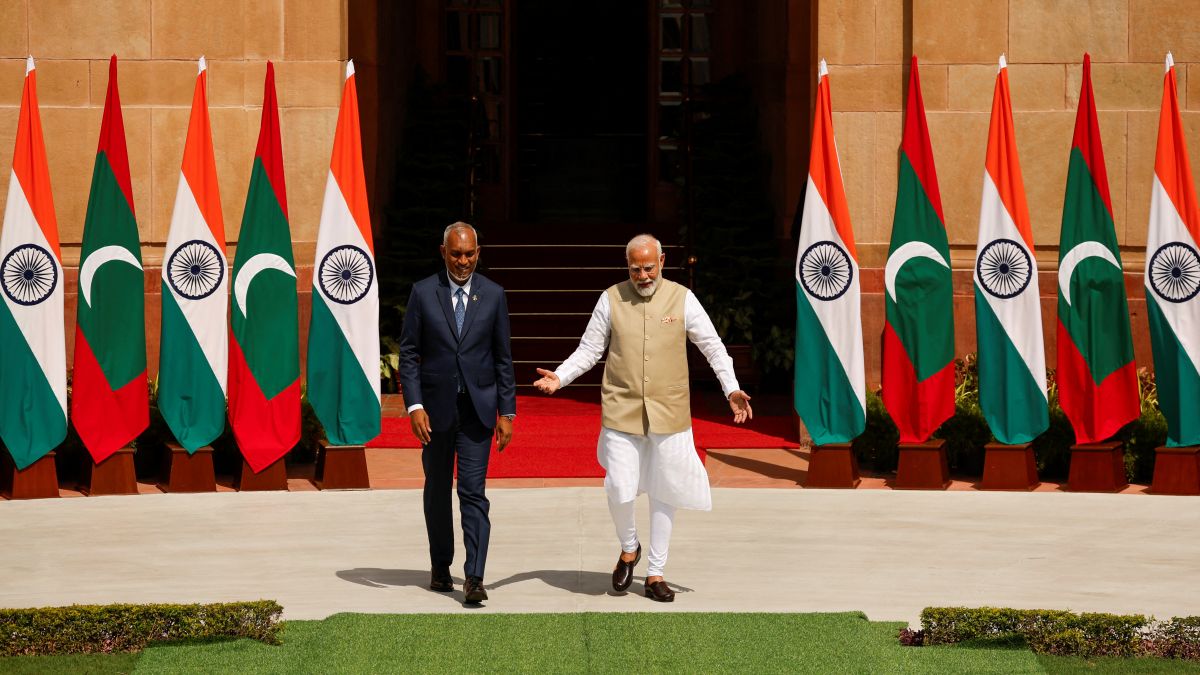)
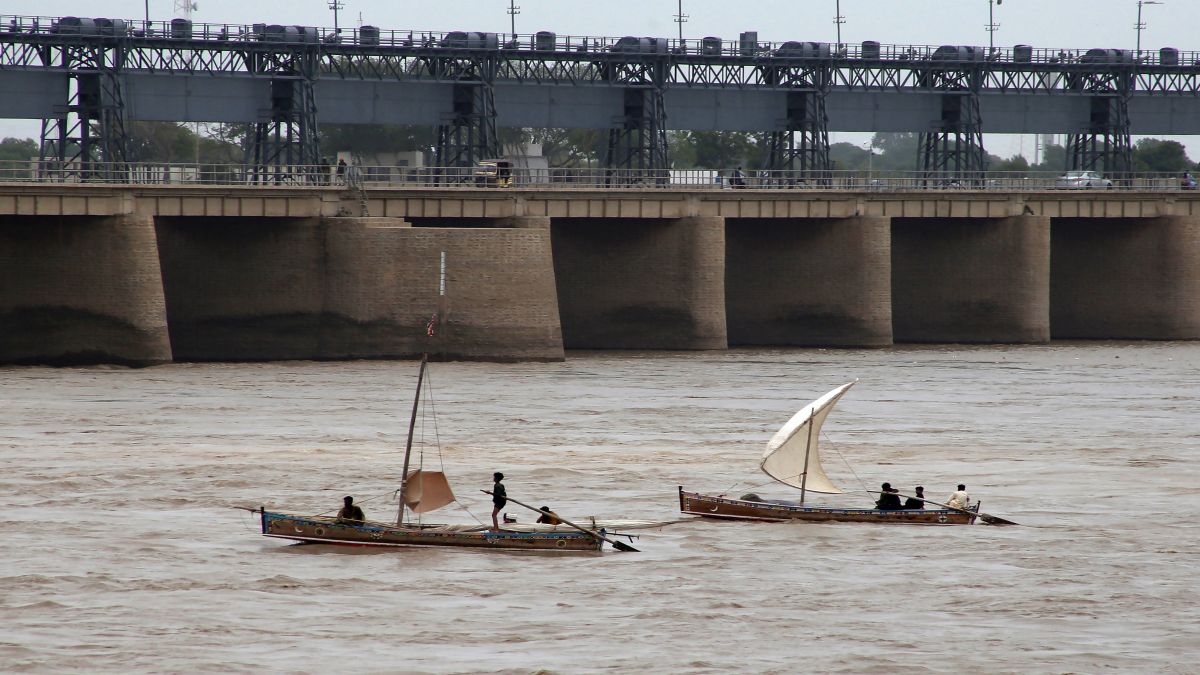)
)
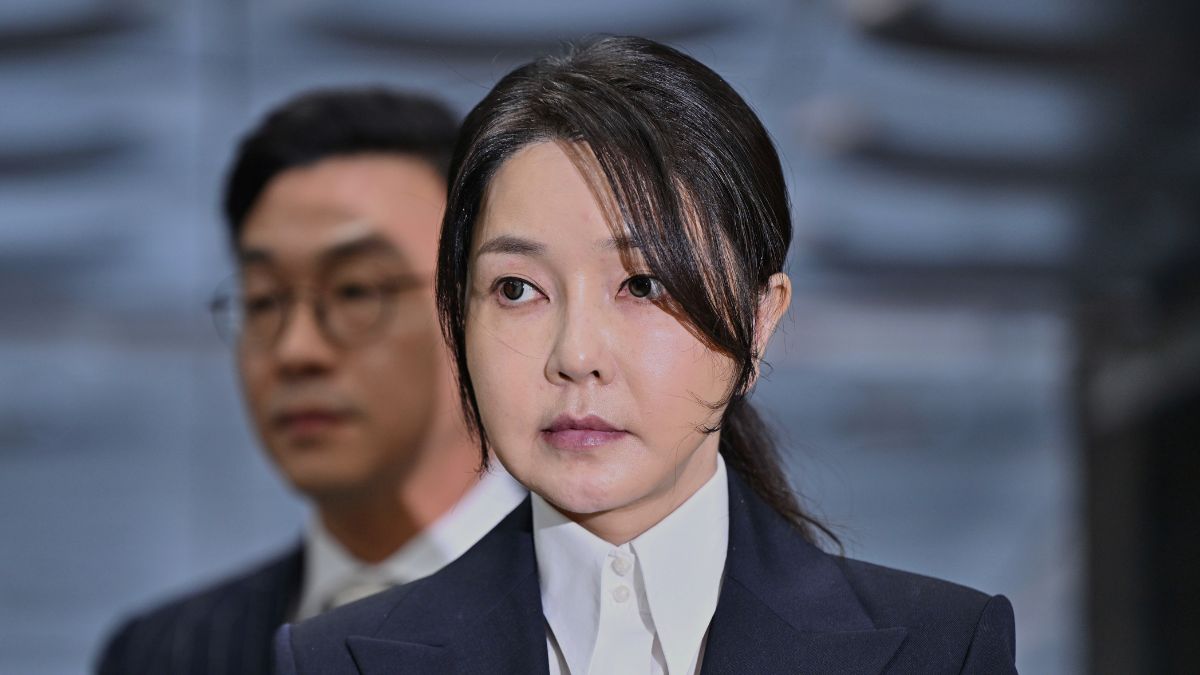)
)
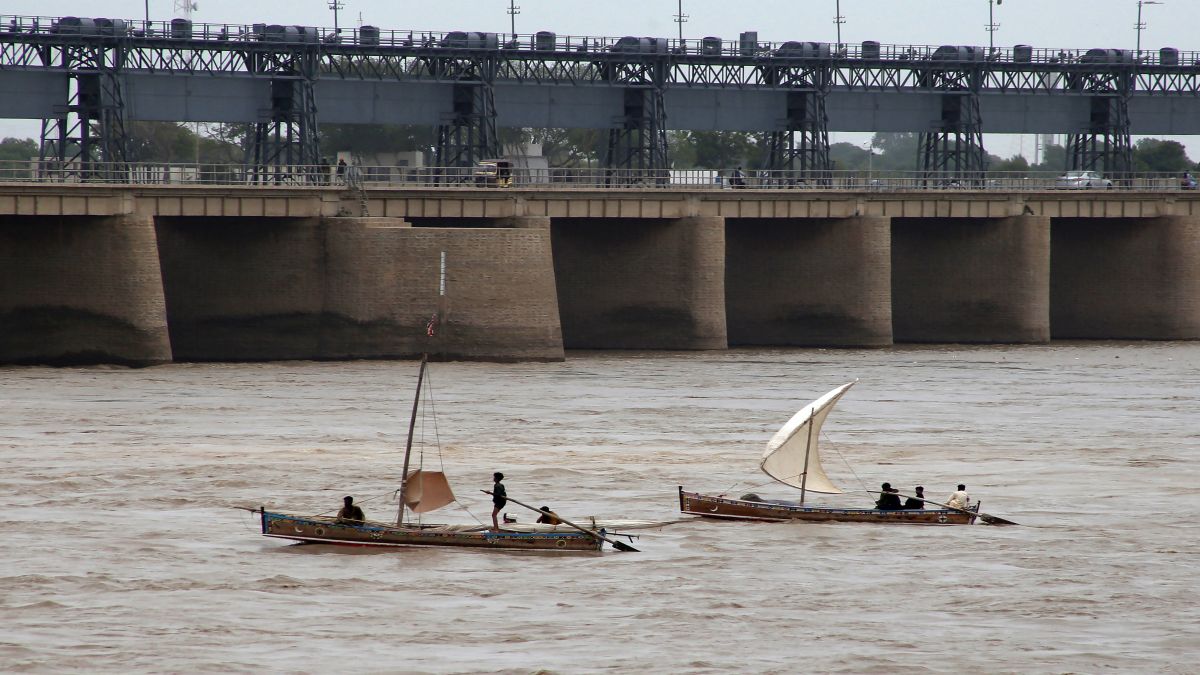)
)
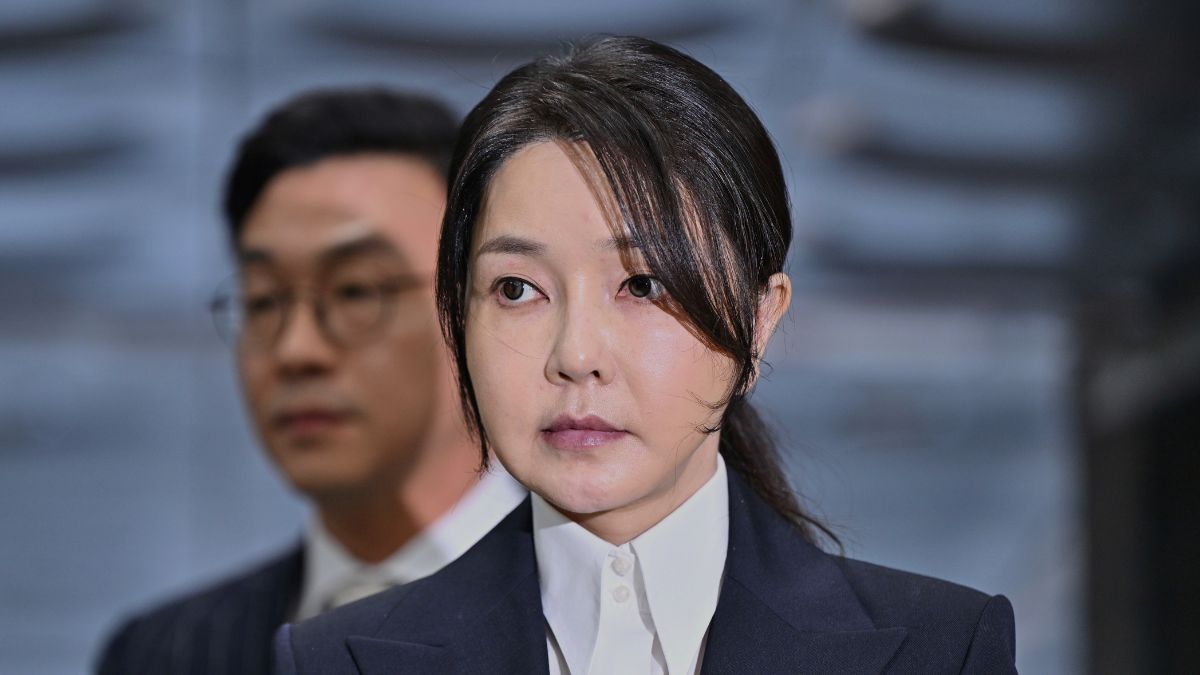)
)



